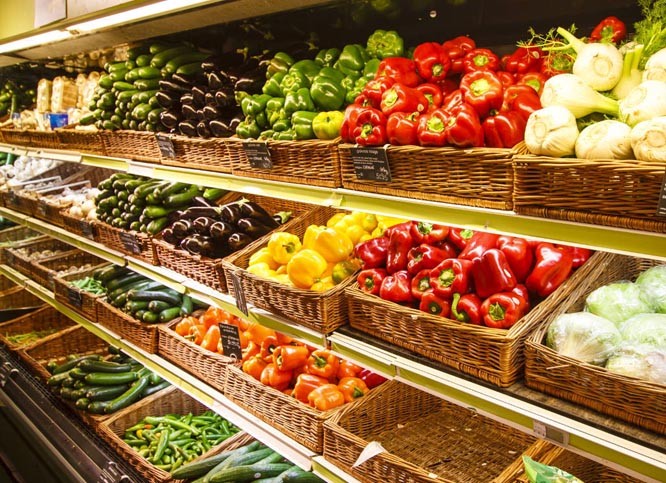

Dear All,
As salaries are squeezed, Brexit looms large and concerns about food quality dominate consumer concerns in the UK, the supermarket/grocery sector is getting ever tighter and more competitive. The past few years have seen the main big names -- Sainsbury’s, Tesco, Asda and Waitrose -- lose business to the smaller no-frills retailers -- like German stores Aldi and Lidl -- and indications are that shoppers are beginning to ask many more questions about their food.
In order to survive, these supermarkets are racing to stay ahead of the curve in terms of consumer trends, trying especially to cater to concerns about food purity. Earlier, organic was one area they seemed to have expanded in successfully. Now, it seems, veganism is the next growth area -- as Tesco, for example, began the year by launching its extensive own-brand range of vegan food. Their range consists of plant-based meal options -- a nod to the rising trend of moving away from animal products.
According to the UK’s Vegan Society there are now more than three and a half times as many vegans in the country as there were in 2006, making this the fastest growing lifestyle movement in Britain. This is an interesting growth for a way of eating that was previously perceived as being ever so slightly on the ‘extreme’ or fringe of vegetarianism.
But why does there now appear to be a 350 per cent rise in veganism?
It seems one reason is that this is a choice that an increasing number of young people are now making, i.e. this is a popular choice with millenials. Add to this all the various findings about the health benefits of a plant-based diet and you begin to see why it might be catching on.
Another aspect is the fact that people moving towards veganism now tend to be less orthodox about the whole thing: many will often adopt a flexible approach -- something labelled as ‘flexitarian’. This ‘flexitarianism’ or flexibility in attempting to reduce meat intake or consumption of animal products was cited by social observers as ‘one of the most striking trends’ of 2017, and it’s the very flexibility of the idea that seems to be steering people in the direction of the vegan.
Indeed, the idea of ‘Veganuary’ is rooted inside this flexitarian approach: it’s a pledge to not eat animal products during the first month of the year at least. Veganuary is an interesting effort to somehow mainstream veganism into one’s life: be a vegan for all of January and then see what happens after that.
Of course there are those in our midst who will roll their eyes and question: well what precisely is the point of all this faddish vegan mumbo jumbo? Who will say we need our animal protein ‘so desist already with the hippy wish lists…’ Who will tut-tut at the idea of avoiding dairy and meats, and declare plant-based diets to be nutritionally inadequate. But the fact of the matter is that for whatever reason, we do seem to be seeing a worldwide shift in the direction of the vegan. And how that plays out in terms of both health and consumer spending will be very interesting to watch.
Best wishes